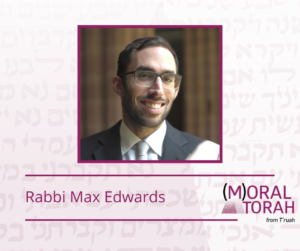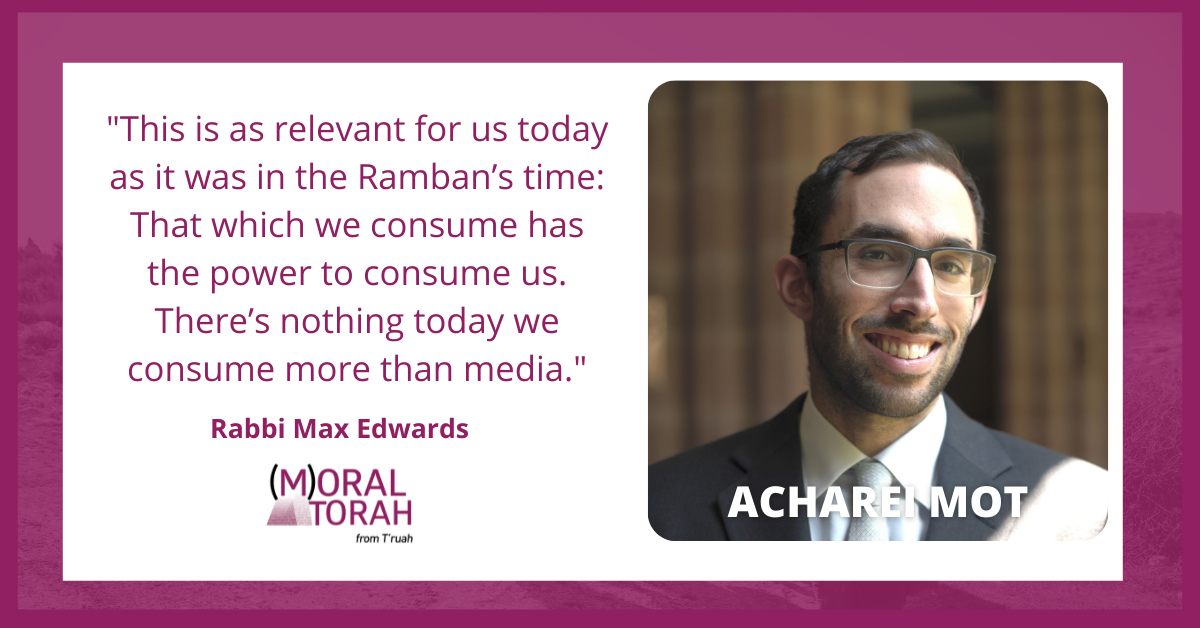A D’var Torah for Parshat Acharei Mot by Rabbi Max Edwards
My dad once told me as a kid that it’s always worth finding the right tool for a specific task. As any IKEA manual will tell you, if you don’t have an Allen wrench, brute forcing a bolt into a piece of particle board will not solve all of your problems. I know from experience.
The Book of Leviticus is dedicated to finding the right tool, to creating systems and structures amid the chaos of the wandering wilderness.
One important system in this week’s parshah, Acharei Mot, is the use of blood as a purifying agent in and around the Tent of Meeting. The high priest would wind his way through the Tabernacle, sprinkling blood throughout, in order to purify and consecrate items like the altar and the cover over the ark.
Blood is the perfect tool for this act, and while it might sound a little messy to modern ears, it purifies, it prepares, and it consecrates. But blood is only a tool in the right context, and it must be used carefully.
Sign up to receive (M)oral Torah in your inbox each week.
Only a few verses later, we encounter blood again, but this time with a grave warning:
And if anyone of the house of Israel or of the strangers who reside among them partakes of any blood, I will set My face against the person who partakes of the blood; I will cut that person off from among their kin. For the life of the flesh is in the blood, and I have assigned it to you for making expiation for your lives upon the altar; it is the blood, as life, that effects expiation. (Leviticus 17:10-11)
Blood, the life-force of all beings, has the power to purify and to consecrate, but it also has the power to corrupt, to scatter, and to exclude. If we use it improperly, it uses us.
This is not the first time, nor is it the last, that we as readers are reminded of the prohibition on the consumption of blood (see Genesis 9:4, Deuteronomy 12:23), but it comes up again at this point in Leviticus perhaps to draw a distinction — to show the reader that a tool used to purify also has the power to render oneself unclean.
Commenting on this prohibition, the Ramban, a 12th century commentator, notes:
“If one were to eat the life of all flesh (i.e. blood) it would then attach itself to one’s own blood and they would become united in one’s heart. The result would be a thickening and coarseness of the human soul so that it would closely approach the nature of the animal soul that resided in that which he ate. Blood does not require digestion as other foods do – by means of which they become changed – and thus [by eating blood] a person’s soul will become combined with the blood of the animal!”
The thrust of this interpretation, 12th century biology aside, is as relevant for us today as it was in the Ramban’s time: That which we consume has the power to consume us.
Find more commentaries on Acharei Mot.
This holds true in the ways in which we engage with the world today. There’s nothing today we consume more than media. Broadcast media, social media, print media — these are invaluable tools that inform us, educate us, cause us to act, and bring us stories from around the world. It gives me the opportunity to focus on individuals within an otherwise amorphous news cycle. However, in the wrong context, or through the wrong lens, these tools of engagement have the power to destroy rather than inform; they consume our time, energy, and at moments our good will.  Twitter has been this place for me in the past — a generative platform from which I most recently found many supplements for my Passover seder, interspersed with hours of unproductive doomscrolling.
Twitter has been this place for me in the past — a generative platform from which I most recently found many supplements for my Passover seder, interspersed with hours of unproductive doomscrolling.
What my dad didn’t tell me was that it can take years to find the right tool and to learn how to use it properly, or in the words of Leviticus, blood is meant for sprinkling, not consuming.
This parshah reminds us of the tools at our disposal and the responsibility we all have to treat them, and ourselves, with care and discernment.
Rabbi Max Edwards is a 2021 graduate of the Rabbinical School of Hebrew College in Newton, MA, and currently serves as the Assistant Rabbi at Temple B’nai Abraham in Livingston, New Jersey.

